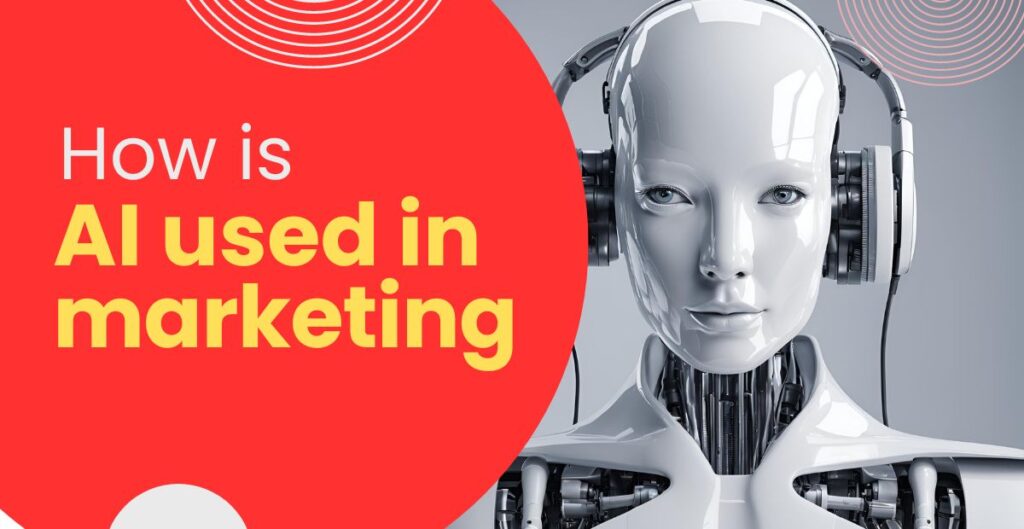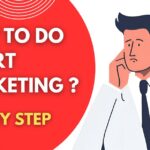How is AI used in marketing
AI has revolutionized many industries, including marketing. Marketing Examples Utilizing Artificial Intelligence (AI).
Marketers can benefit from AI in multiple ways, including:
How is AI used in marketing: AI can create content for websites, blogs, social media pages, emails and advertisements using data analysis and natural language processing techniques. Customized for each individual based on likes/dislikes and past actions taken can further personalize this form of AI generation.
Segmenting and Targeting Customers: Artificial intelligence can sift through mountains of data to identify trends and patterns related to customer demographics and psychographics as well as purchasing, browsing, and feedback behavior. In order to best serve each consumer individually, AI can divide them up according to their preferences and needs and group them accordingly.
How is AI used in marketing and Execute
AI can predict consumer behavior such as churn rate, lifetime value, conversion rate, and loyalty by employing data mining, machine learning, and statistical modeling techniques. Furthermore, it may provide insight into consumer emotions such as satisfaction levels and pain points to provide strategies to increase both retention and satisfaction levels.
Artificial Intelligence can further optimize advertisements’ efficacy by testing different factors like keywords, headlines, graphics and audiences while altering bids and budgets accordingly.
Chatbots and virtual assistants powered by AI provide customers with 24-hour text and voice support, such as information requests, inquiries, issues resolution, recommendations and transactions. These virtual assistants may assist customers with information requests, inquiries, problems resolution and even transactions – providing 24/7 assistance from any digital device!
Understanding How is AI used in marketing and Advertising
Businesses and consumers can both benefit from using artificial intelligence in their marketing strategies. Some advantages may include:
Artificial Intelligence can assist marketers by automating repetitive, time-intensive processes that otherwise consume a considerable amount of their resources and time – leading to greater efficiency and productivity, giving more time for planning and innovation.
AI can quickly and accurately analyze massive amounts of data, producing marketing results that are more dependable, accurate, and less subject to biases or mistakes by humans.
Artificial Intelligence can increase customer interest, trust and loyalty. Chatbots or virtual assistance powered by AI may speed up and enhance customer service delivery.
Marketing with AI: Some Obstacles to Keep in Mind
Though AI offers many benefits for marketers, there can be risks involved as well.
Marketers must also remain wary of potential complications when engaging in this endeavor.
Problems encountered include:
Artificial Intelligence (AI) can only learn and complete tasks through analyzing vast amounts of data. Marketers must comply with privacy, security and ethical requirements while having access to accurate and pertinent data sets.
Human involvement must always take precedence as AI cannot replace human intelligence and creativity. Marketers need to monitor how well their AI apps are faring, taking measures as necessary to fix bugs, adjust settings or incorporate customer input if required. Marketers must strike a balance between using AI and human engagement through keeping personal touches such as showing empathy with clients present throughout.
Due to AI’s complexity and rapid evolution, only a minority of people currently have access to it. Therefore, marketers looking to stay abreast of AI marketing trends and best practices need to invest in training for themselves and their teams in order to stay current.
Artificial Intelligence in Advertising Use Cases
Numerous marketing campaigns utilize some form of artificial intelligence in their campaigns today.
Below are a few examples:
Netflix uses artificial intelligence (AI) to provide tailored suggestions to viewers based on their viewing habits, ratings and preferences. They also employ it for creating previews and titles tailored specifically for the individual viewer.
Coca-Cola uses AI to develop and fine-tune their data- and machine-learning-supported digital advertisements, and also in product testing such as Cherry Sprite developed as a result of consumer feedback.
Spotify uses artificial intelligence (AI) to identify and promote emerging artists based on factors like genre, listenership, and future success.
Sephora’s Virtual Artist app uses AI to allow users to virtually apply a range of makeup and hairstyles by scanning their faces and projecting the results onto the screen. Based on each customer’s beauty profile, purchasing history, preferences, Sephora uses its AI platform to offer tailored recommendations and offers based on this data.
Conclusion of how is AI used in marketing:
Artificial intelligence can bring tremendous advantages to marketing strategies and results alike. Marketers can utilize AI for various uses within marketing such as media buying and optimization; chatbots/virtual assistants; customer segmentation/targeting; predictive analytics/consumer insights/content development and personalization.
Marketers need to recognize and address challenges relating to data security and privacy, requiring human monitoring or intervention and lacking skills and training for AI use responsibly to create value for both clients and business. Here is more on AI in marketing: http://bit.ly/1LwOcUj
Ans: Could you explain what artificial intelligence (AI) means in advertising.
AI can assist marketers by tailoring marketing efforts specifically to each customer.
Why can AI be utilized by marketers?
Content creation and personalization, customer segmentation and targeting, predictive analytics and customer insights, media buying optimization, chatbots/virtual assistants are just a few areas where marketers can use AI effectively.
Where have you run into difficulties when using AI for promotion?
Answer: AI implementation may face obstacles like data quality and privacy concerns, human monitoring/intervention requirements, and lack of skilled marketers.
How could artificial intelligence be utilized in advertising?
A: Netflix’s recommended viewing, Coca-Cola’s digital commercials and new goods offerings, Spotify’s featured artists/playlists/playlists recommendations and Sephora virtual try-on features and personalized offers are all examples of AI marketing use cases.



